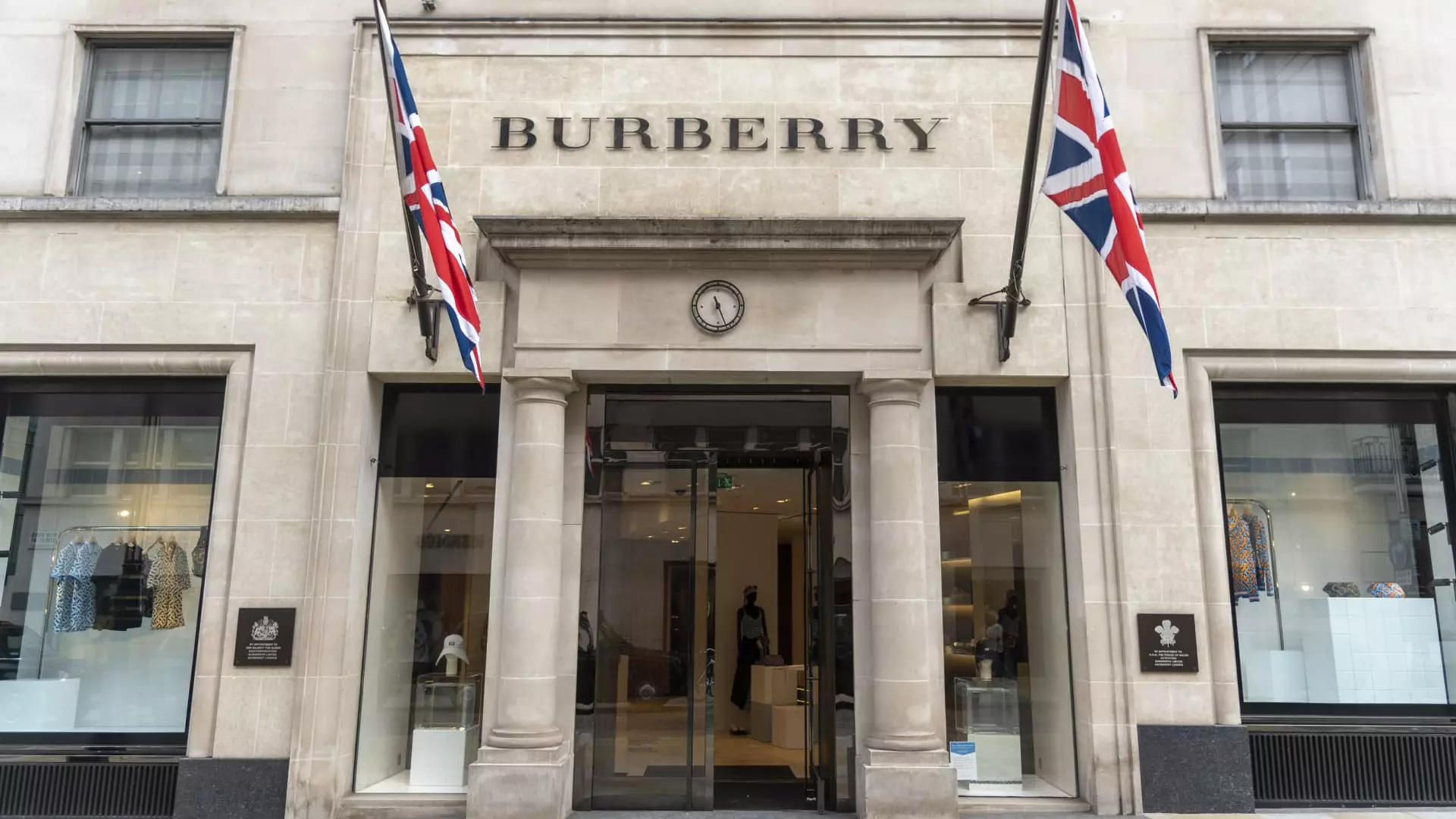British luxury fashion house Burberry Group faced a significant setback as it dropped out of the U.K.’s prestigious FTSE 100 stock market index. The company’s descent into the FTSE 250 marked the end of a 15-year tenure in the blue-chip index, highlighting the challenges that Burberry has been grappling with in recent times.
Established in 1856 in Basingstoke, England, Burberry gained international renown for its iconic collection of trench coats, handbags, and signature check print. However, despite its historical significance, the brand has faced an uphill battle in maintaining its high-end aesthetic and market appeal. The adoption of Burberry’s trademark pattern by the British working class in the 1990s and 2000s contributed to a shift in the brand’s image, leading to difficulties in repositioning itself as a luxury label.
Successive changes in leadership, with four CEOs at the helm in the last decade, have raised concerns among investors about Burberry’s strategic direction and market competitiveness. The recent appointment of Joshua Schulman as CEO signals a potential shift in the company’s approach, with a focus on revitalizing its fortunes through a “British Coach” strategy aimed at cost reduction, increased outlet presence, and greater engagement with off-price retailers.
Burberry’s relegation from the FTSE 100 comes at a time when the company’s share price has plummeted by over 70% in the past year and more than 53% year-to-date. The decline in sales, coupled with multiple profit warnings and dividend suspensions, has heightened concerns about Burberry’s financial stability and long-term prospects in the luxury market.
Analysts have warned of further share price erosion unless significant measures are taken to address the brand’s diminishing market appeal and consumer traction. The company’s half-year financial results, scheduled for release on November 14, will be closely watched for any signs of improvement or continued challenges facing Burberry.
Burberry’s struggles reflect broader challenges facing the luxury sector, with a prolonged downturn in consumer spending, inflationary pressures, and economic uncertainties impacting industry players globally. The luxury market’s performance has been particularly subdued in key markets such as China, where luxury consumption has declined, leading to weaker sales figures for prominent luxury brands across the board.
While Burberry faces significant headwinds, there is optimism about the brand’s ability to rebound and reclaim its position as a key player in the luxury market. The cyclical nature of the industry and ongoing opportunities for recovery present a pathway for Burberry to address its operational issues and regain investor confidence.
Joshua Schulman’s tenure as CEO of Burberry marks a pivotal moment in the company’s history, with expectations for a turnaround in fortunes through his proposed “British Coach” strategy. As the fashion brand continues to navigate market volatility and evolving consumer preferences, Schulman’s leadership will be critical in determining Burberry’s future trajectory and potential return to the FTSE 100 index.
Burberry’s demotion from the FTSE 100 underscores the challenges and opportunities facing the brand in a rapidly changing luxury market landscape. With a renewed focus on strategic realignment, operational efficiency, and market positioning, Burberry has the potential to stage a comeback and revitalize its brand image in the UK stock market and beyond.


Leave a Reply